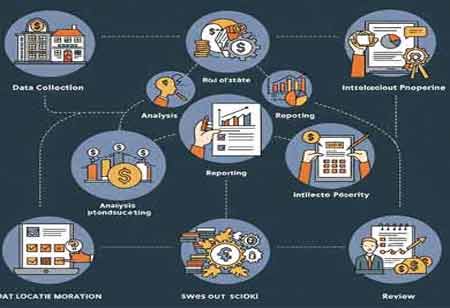CLOSE
Specials
- RegTech Europe
- Financial Risk Management APAC
- Investment Banking APAC
- Corporate Advisory APAC
- Regtech APAC
- Escrow Services
- Digital Banking Latam
- Trading Solutions APAC
- Treasury Management Europe
- CPA Firms Canada
- Financial Risk Management Europe
- Mortgage Broker
- Financial Licensing Europe
- RIA Advisory Europe
- FinTech Canada
- Financial Asset Management APAC
- Investment Banking Canada
- Payment Solution
- Lending Mangment Latam
- Payment Solution Europe
- Broker Dealer Firms Canada
- Alternative Investments Canada
- Financial Fraud
- Investment Management Latam
- Financial Health Europe
- Lending mangment
- Financial Marketing
- Proprietary Trading Europe
- Wealth Management
- FinTech
- Financial Brokerage Firm APAC
- Investment Advisory Europe
- Investment Advisory APAC
- Wealth Management MENA
- Claim Adjusting
- Claim Adjusting APAC
- Mergers and Acquisitions Consulting APAC
- Equipment Financing
- CPA Firms
- Mergers and Acquisitions Consulting Canada
- Investment Services
- Valuation Services Canada
- Wealth Management APAC
- Broker Dealer Firms
- Debt Collection Agencies
- Mergers and Acquisitions Consulting
- FinTech Europe
- Fintech Latam
- Financial Planning / Retirement
- Investment Management
- Financial Compliance
- Digital Banking Europe
- CFO Services
- Debt Collection Agencies Europe
- Wealth Management Europe
- Mergers and Acquisitions Consulting Europe
- Financial Restructuring Europe
- Financial Portfolio Management Canada
- Business Loan
- Payment and Card Latam
- Wealth Management Latam
- Mergers and Acquisitions Consulting Latam
- Tax Advisory Canada
- Trading Solutions Europe
- Alternative Investments
- Digital Insurance Europe
- Investment Services Latam
Weekly Brief
×Be first to read the latest tech news, Industry Leader's Insights, and CIO interviews of medium and large enterprises exclusively from Financial Services Review
Thank you for Subscribing to Financial Services Review Weekly Brief
Perks of Digital Bookkeeping for Small-Scale Businesses
The world has been undergoing a transition to digital media. From grocery browsing to purchasing airline tickets, everything now takes place online.

By
Financial Services Review | Tuesday, June 13, 2023
Stay ahead of the industry with exclusive feature stories on the top companies, expert insights and the latest news delivered straight to your inbox. Subscribe today.
Digitization in bookkeeping has contributed to the cost-effectiveness of enterprises by reducing time consumption and boosting productivity.
FREMONT, CA: The world has been undergoing a transition to digital media. From grocery browsing to purchasing airline tickets, everything now takes place online. Large and small businesses embrace digitalization to keep up with shifting consumer preferences and industry trends. In automating operations, most companies rely on digital bookkeeping with the assistance of their professional bookkeepers. These professionals utilize cloud-based accounting software, eliminating the time-consuming practice of manual data entry. Digitization benefits accounting firms, as they no longer need to spend hours and mountains of paper performing calculations. It streamlines accountancy and facilitates efficient financial management.
Entrepreneurs are not required to record daily transactions, generate reports, comply with tax regulations, or comprehend tax deductions. Using accounting software, the bookkeeper performs all of these responsibilities with efficiency. These duties do not require any manual labor because the recordkeeping system automates them. Calculations and tabulations are error-free because a computer performs them. The work that previously required hours can now be completed in minutes without effort. The most significant aspect of digital bookkeeping is that everything is organized chronologically in a single location.
The digital format enables the business owner to retrieve and analyze financial data from the previous and current fiscal years. Whether the business proprietor is invoicing, importing transaction data from the bank, or evaluating expenses, they can access all relevant data in a single location. It facilitates financial control and management without shifting through countless unidentified files and data. It provides the business owner with comprehensive and exhaustive reports on the company's financial health. It aids them in making prudent business decisions and investments.
Digital bookkeeping is the accessibility of financial data. The software facilitates access to real-time financial data from any location and at any time. The business proprietor and authorized employees can access the most recent reports and transaction summaries via computer, laptop, or smartphone. The software can be integrated with the business bank account so that the management can monitor expenses, stock, and incomings in real time. They can use the dashboard to get a quick overview of the parameters they wish to routinely monitor. There is no need to delay bank reconciliation because it can be performed immediately online.
Accounting software automates accounting processes and reduces time and money waste by eliminating accounting errors and tax penalties. The accounting department's paper utilization is minimal, as all data is stored and managed online. The business can operate with minimal documentation, as all financial documents are now created and shared online. As all data can be accessed online, it also facilitates rapid collaboration and provides the opportunity for working from home or remotely. Digital accounting is becoming the preferred method of financial administration due to its convenience, cost-effectiveness, and increased productivity. Most bookkeepers recommend accounting software to make a system robust, quick, and results-driven.

Copyright © 2025 Financial Services Review. All rights reserved





